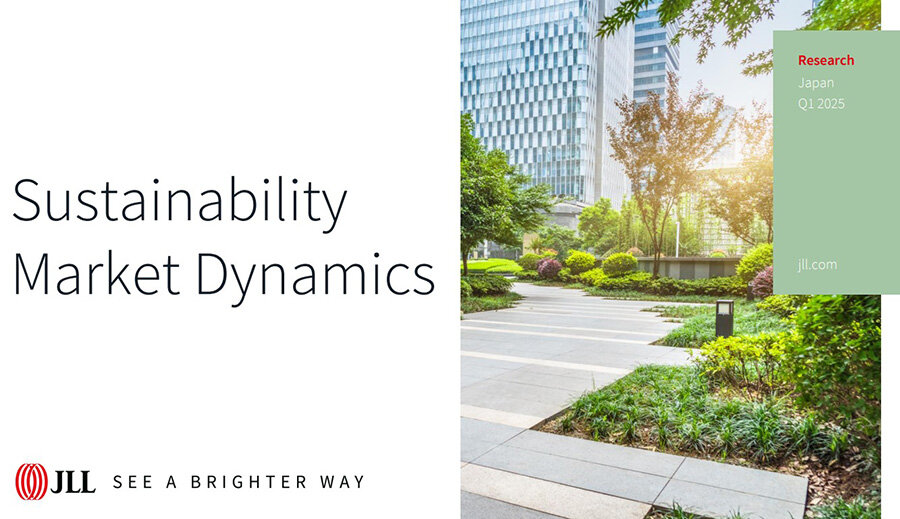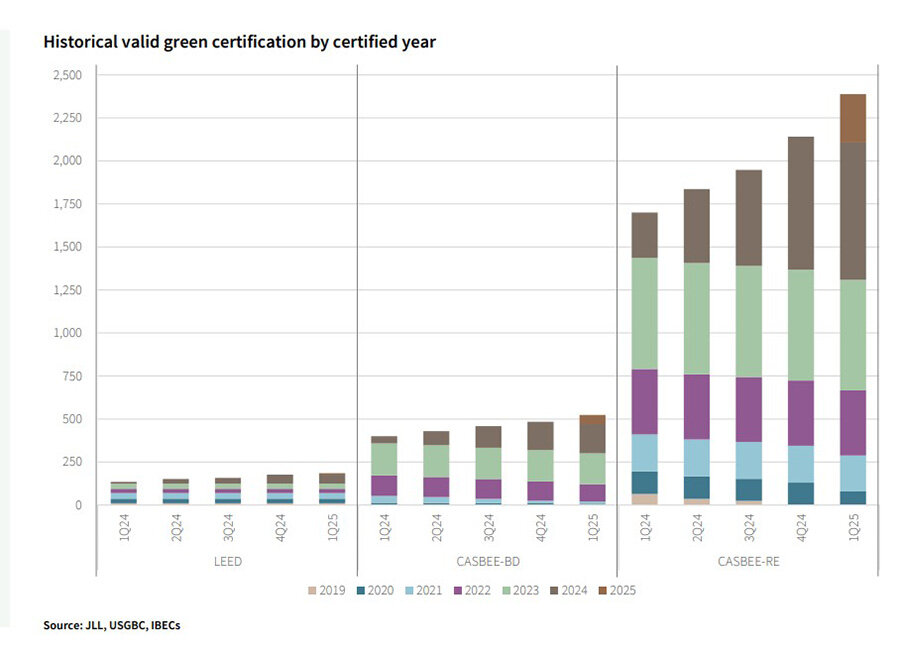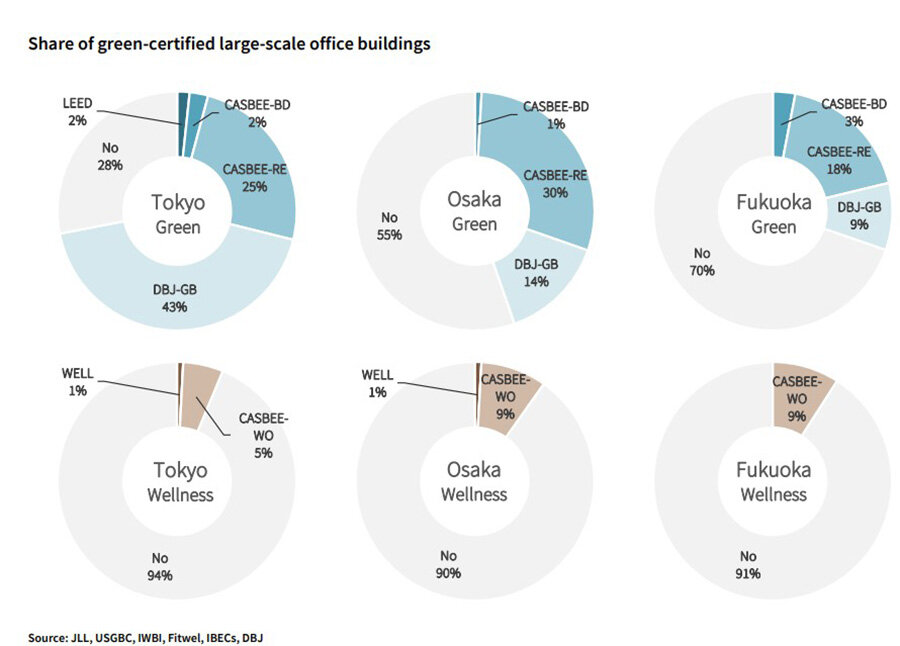Japan Tightens Environmental Standards in Construction

Japan is witnessing rapid growth in the number of eco-friendly and energy-efficient buildings. In the first quarter of 2025 alone, hundreds of new properties received green certifications, according to JLL experts. At the same time, new rules came into force requiring companies to disclose the impact of their activities on the climate and environment. These factors are becoming increasingly important for both developers and investors.
International and National Standards
Japan applies both international and domestic environmental standards. In Q1 2025, 282 properties received CASBEE-RE (Real Estate) certifications for commercial buildings, while 54 projects were certified under the CASBEE-BD (Buildings) system. International LEED (Leadership in Energy and Environmental Design) certifications were awarded to nine projects, and five buildings received WELL certification, which focuses on workplace comfort and health. By contrast, the American Fitwel program remains marginal in Japan, covering only five projects for the fourth quarter in a row.
Since 2009, a total of 315 projects in Japan have achieved LEED certification, with 37 new certifications added since the beginning of 2023. A highlight of the quarter was the Azabudai Hills complex, which achieved LEED ND Platinum. In the wellness category, the Mitsubishi Corporation and Shimizu Corporation offices in Nagoya were both awarded Platinum-level WELL certificates.
National CASBEE standards continue to show the most dynamic growth. Since early 2023, the number of CASBEE-BD certified buildings has more than doubled (2.1x) to 526, while CASBEE-RE certifications have more than doubled (2.2x) to 2,388. CASBEE-WO (Wellness Office) has grown more modestly, with just nine certifications in the last quarter, one of them a recertification. Overall, the segment expanded 1.9x since 2023, but growth is clearly slowing compared to other categories.

According to JLL, when a building holds multiple certifications, only the highest-ranked one is counted. The analysis includes only major office buildings built after 1990: at least 30,000 sq. m in Tokyo and 15,000 sq. m in Osaka and Fukuoka. In some cases, LEED ND certifications are included even though they apply to neighborhood development rather than individual buildings.
DBJ Green Building Leading in Tokyo
A significant share of certifications comes from the DBJ Green Building program (DBJ-GB), developed by the Development Bank of Japan. In Tokyo, 43% of certified buildings use DBJ-GB. By Q1 2025, 72% of large office buildings in the capital had achieved green certification — 7 percentage points more than the previous quarter. CASBEE-RE accounts for 25% of the certified stock, while LEED and CASBEE-BD each cover 2%.
Growth in Osaka is more modest: 45% of major offices are certified, up 3 points from Q4 2024. CASBEE-RE dominates with 30%, followed by DBJ-GB (14%) and CASBEE-BD (1%). In Fukuoka, 30% of buildings are certified (+3 points in a quarter), primarily through CASBEE-RE and DBJ-GB.
Wellness certifications are less common outside Tokyo. Just 6% of large offices in the capital have wellness certificates, compared with 10% in Osaka and 9% in Fukuoka. CASBEE-WO and WELL are the main systems, covering only 1–5% of the total stock. Fitwel remains negligible, with the same five projects listed for more than a year.

New Disclosure Rules from SSBJ
In March 2025, Japan introduced new national sustainability disclosure standards, developed by the Sustainability Standards Board of Japan (SSBJ). From now on, all companies must disclose climate- and environment-related risks and opportunities linked to their operations. These requirements drive demand for certified buildings not only among developers, but also tenants, investors, and financial institutions.
As regulations tighten and business interest grows, environmental certification is becoming less a voluntary tool and more a market norm. This is particularly evident in Tokyo, where over two-thirds of offices already meet sustainability standards. According to JLL, similar trends are expected in other major Japanese cities in the coming quarters.
Подсказки: Japan, real estate, green building, CASBEE, LEED, WELL, DBJ Green Building, sustainability, eco standards, construction, investors, Tokyo, Osaka, Fukuoka








